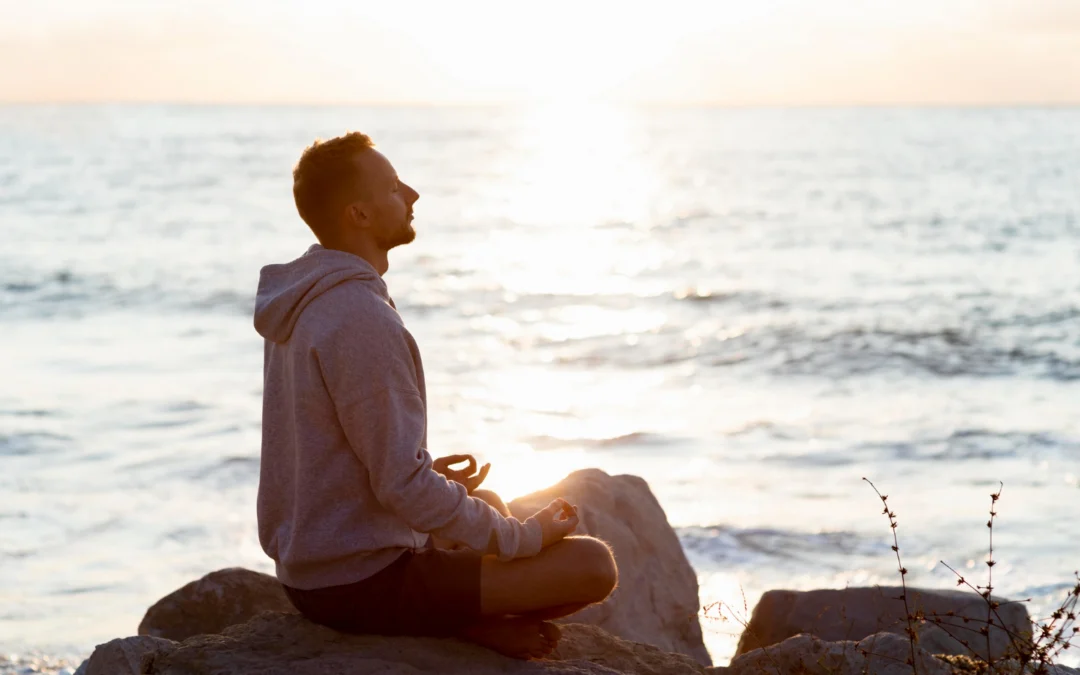Imagine a world where stress is a distant memory, where clarity reigns supreme, and where creativity flows effortlessly. This is not merely a dream; it’s a reality accessible to all through the profound practices of mindfulness and meditation. The benefits of mindfulness are transformative; they help us navigate life’s challenges with calm, clarity, and resilience. Today, let’s explore these benefits together and uncover how mindfulness and meditation can profoundly reshape your life, one mindful moment at a time.
What Exactly is Mindfulness?
At its core, mindfulness is about presence. It’s the art of fully engaging in the moment, with all your senses, without judgment or distraction. In a world constantly vying for our attention, mindfulness offers us the gift of now. It’s about tuning into the subtle experiences we often overlook—the rhythm of your breath, the sun’s warmth on your face, the sound of your heartbeat. It’s about living life in high definition.
Benefits of Mindfulness for Mental Health
Now, let’s delve into why these matters—why it matters to you, to me, to all of us. We live in a world that demands so much from us—our time, our energy, our very essence. Stress, anxiety, and depression are at all-time highs. But here’s the thing: mindfulness and meditation offer a way out. They offer a lifeline.
- Stress Reduction: Imagine a life where stress doesn’t control you, where you can face life’s challenges with grace and calm. That’s what mindfulness offers. By focusing on the present moment, you break free from the cycle of stress-inducing thoughts, leading to a profound sense of peace.
- Enhanced Focus and Clarity: Our minds are like a monkey swinging from thought to thought, rarely settling. But with mindfulness, you learn to anchor your attention, sharpening your focus and enhancing your cognitive abilities. It’s like upgrading your mental operating system.
- Emotional Mastery: How often do we let our emotions dictate our actions? Mindfulness teaches you to see your emotions without getting swept away by them. It’s about creating a space between stimulus and response, where true freedom lies.
- Building Resilience: Life is unpredictable; it throws curveballs. Mindfulness equips you with the resilience to bounce back, to face adversity with a steady heart and a clear mind.
- Conquering Anxiety and Depression: For those battling mental health challenges, mindfulness is more than just a tool; it’s a lifeline. It helps break the cycle of negative thinking, offering a fresh perspective and a renewed sense of hope.
The Body-Mind Connection
But mindfulness doesn’t just stop at the mind; it extends to the body, creating a holistic sense of well-being.
- Lowering Blood Pressure: Meditation has a profound effect on the body, lowering blood pressure and reducing the risk of heart disease. It’s like hitting the reset button on your nervous system.
- Improving Sleep: How many of us struggle with sleep? Tossing and turning, our minds racing? Mindfulness offers a pathway to better sleep by calming the mind and relaxing the body.
- Managing Pain: Pain is inevitable, but suffering is optional. Mindfulness teaches us to see pain without becoming consumed by it. It’s a powerful tool for those dealing with chronic pain, offering a new way to relate to their bodies.
Mindfulness in Recovery: A Lifesaver
For those on the path of recovery from addiction or mental health struggles, mindfulness is nothing short of revolutionary. It offers a safe space to explore the underlying issues that drive destructive behaviors. It’s about building self-awareness, recognizing triggers, and finding peace in the present moment.
Mindfulness doesn’t judge; it simply observes. And in that observation lies healing. It’s a practice that complements traditional treatment methods, offering a holistic approach to recovery that addresses the mind, body, and spirit.
Starting Your Mindfulness Journey
So, how do you begin? The beauty of mindfulness is that it’s accessible to everyone. You don’t need a special cushion or a silent retreat—just a willingness to start.
- Begin with Breathing: Your breath is your anchor. Start by simply paying attention to it—how it feels as it enters and leaves your body. Let it be your guide.
- Find Your Space: Create a space in your home where you can sit quietly, free from distractions. It doesn’t have to be fancy; it just has to be yours.
- Be Gentle with Yourself: Mindfulness is a practice, not a perfection. Your mind will wander, and that’s okay. Gently bring it back, again and again.
The Ripple Effect
Here’s the thing about mindfulness and meditation—they don’t just change your life; they change the world. When you cultivate inner peace, you contribute to outer peace. When you live with intention, you inspire others to do the same. The benefits ripple out, touching every part of your life and the lives of those around you.
A Call to Presence
In a world that’s constantly pulling us in a million directions, mindfulness and meditation offer us a way back to ourselves. They offer us the opportunity to live fully, to love deeply, and to connect authentically—with ourselves and with others. So, I invite you to take a deep breath, to pause, and to begin. The journey of a thousand miles begins with a single step. And that step, my friends, is mindfulness.


